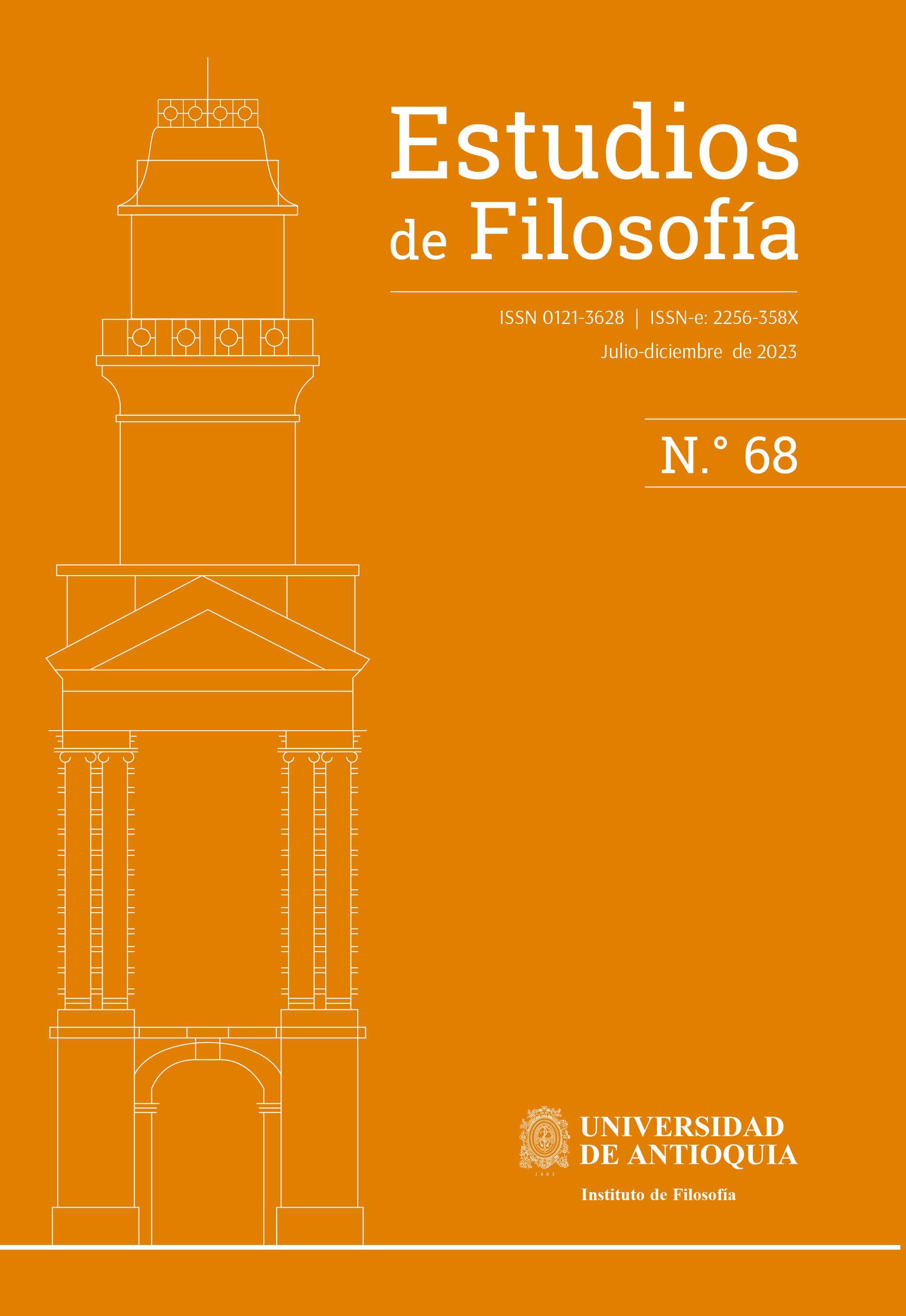Art between Fetishism and Melancholy in Adorno’s Aesthetic Theory
DOI:
https://doi.org/10.17533/udea.ef.352426Keywords:
aesthetics, commodity fetishism, melancholy, form, Adorno, Marx, FreudAbstract
The article explores Adorno’s understanding of fetishism and melancholy as immanent to the artwork’s autonomous structure. In order to understand the relation between them, the Freudian understanding of fetishism and melancholy has to be considered along with the more explicit reference to the Marxist concept of commodity fetishism. Analysing the implications of Adorno’s claim that commodity fetishism is at the origin of artistic autonomy, the article shows how it should be understood not only as a materialist demystification but also as a reaffirmation of art’s apparent self-sufficiency and its capacity to resist the commodification of society. Nevertheless—the article claims—thas this is only possible if art’s fetishism is dialectically opposed to its melancholy, through which art establishes a relation to the heterogeneous element of the lost object produced by its autonomous form.
Downloads
References
Adorno, T. W. (1973). Negative Dialectics (E. B. Ashton, Trans.). Routledge.
Adorno, T. W. (1991). Notes to Literature, Vol. 1 (S. Weber Nicholsen, Trans.). Columbia
University Press.
Adorno, T. W. (1997). Aesthetic Theory (R. Hullot-Kentor, Trans.). Continuum.
Benčin, R. (2019a). Art between Affect and Indifference in Hegel, Adorno and Rancière. Filozofski Vestnik, 40(1), 165-182. https://ojs.zrc-sazu.si/filozofski-vestnik/article/view/8100
Benčin, R. (2019b). Form and Affect: Artistic Truth in Adorno and Badiou. In J. Völker (Ed.), Badiou and the German Tradition of Philosophy (pp. 197–216). Bloomsbury. https:// doi.org/10.5040/9781350069978.ch-011
Cahn, M. (1984). Subversive Mimesis. Theodor W. Adorno and the Modern Impasse of Critique. In: M. Spariosu (Ed.), Mimesis in Contemporary Theory. Volume 1: The Literary and Philosophical Debate (pp. 27–64). John Benjamin’s Publishing Company. https://doi. org/10.1075/cl.1.1.04cah
Freud, S. (1957). Mourning and Melancholia. In: The Standard Edition of the Complete Psychological Works of Sigmund Freud, Vol. XIV (pp. 243–258) (J. Strachey, Trans.) Hogarth Press.
Freud, S. (1961). Fetishism. In: The Standard Edition of the Complete Psychological Works of Sigmund Freud, Vol. XXI (pp. 147–157) (J. Strachey, Trans.) Hogarth Press.
Hegel, G. W. F. (1988). Aesthetics: Lectures on Fine Art, Vol. I (T. M. Knox, Trans.). Oxford University Press.
Jameson, F. (2007). Late Marxism: Adorno or the Persistence of the Dialectic. Verso.
Leibniz G. W. The Principles of Philosophy, or, the Monadology. In Philosophical Essays, Philosophical Essays (pp. 213–225) (R. Ariew and D. Garber, Trans.). Hackett.
Martin, S. (2007). The Absolute Artwork Meets the Absolute Commodity. Radical Philosophy 146, 15–25. Retrieved from https://www.radicalphilosophy.com/article/the-absolute- artwork-meets-the-absolute-commodity
Robinson, J. (2018). Adorno’s Poetics of Form. SUNY Press.
Published
How to Cite
Issue
Section
Categories
License
Copyright (c) 2022 Rok Benčin

This work is licensed under a Creative Commons Attribution-NonCommercial-ShareAlike 4.0 International License.
Authors who publish with this journal agree to the following terms:
1. The Author retains copyright in the Work, where the term "Work" shall include all digital objects that may result in subsequent electronic publication or distribution.
2. Upon acceptance of the Work, the author shall grant to the Publisher the right of first publication of the Work.
3. The Author shall grant to the Publisher a nonexclusive perpetual right and license to publish, archive, and make accessible the Work in whole or in part in all forms of media now or hereafter known under a Creative Commons Attribution-NoCommercia-ShareAlike (CC BY-NC-SA 4.0), or its equivalent, which, for the avoidance of doubt, allows others to copy, distribute, and transmit the Work under the following conditions: (a) Attribution: Other users must attribute the Work in the manner specified by the author as indicated on the journal Web site;(b) Noncommercial: Other users (including Publisher) may not use this Work for commercial purposes;
4. The Author is able to enter into separate, additional contractual arrangements for the nonexclusive distribution of the journal's published version of the Work (e.g., post it to an institutional repository or publish it in a book), as long as there is provided in the document an acknowledgement of its initial publication in this journal;
5. Authors are permitted, and Estudios de Filosofía promotes, to post online the preprint manuscript of the Work in institutional repositories or on their Websites prior to and during the submission process, as it can lead to productive exchanges, as well as earlier and greater citation of published work (see The Effect of Open Access). Any such posting made before acceptance and publication of the Work is expected be updated upon publication to include a reference to the Estudios de Filosofía's assigned URL to the Article and its final published version in Estudios de Filosofía.
















